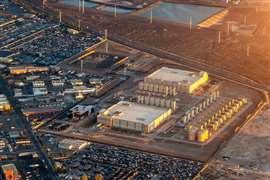China pledges $122 billion for OBOR
16 May 2017

President Xi Jinping of China has promised to invest a further $121.7 billion in the One Belt, One Road (OBOR) initiative – an international infrastructure scheme that was launched by China in 2014 to revive the ancient east-west trade networks, collectively known as the Silk Road.
The strategy was said to involve high-speed railways, bridges, roads, ports, industrial parks, oil pipelines and power grids that will be built across the region, from Mongolia and Laos to Uzbekistan and Malaysia.
While billions of dollars have already been invested, the additional $121.7 billion pledged in new loads, aids and funding will be used to boost the existing Silk Road Fund, help developing countries along the new trade routes, and encourage financial institutions to expand overseas financing, though Jinping did not say when the extra money would be spent.
The pledge for extra funding was recently announced at the Silk Road summit in Beijing, where Jinping addressed leaders from around the world – including heads of the United Nations, International Monetary Fund and World Bank – saying, “We should foster a new type of international relations featuring win-win cooperation.”
The majority of China’s closest neighbours have expressed enthusiasm for the infrastructure investment and economic development that OBOR promises to bring.
China’s commerce minister, Zhong Shan, said China planned to import $2 trillion worth of products from OBOR-participating countries over the next five years.
Notably, however, India boycotted the summit to demonstrate its opposition to the China-Pakistan Economic Corridor (CPEC), which is a flagship OBOR project connecting China and Pakistan with road, rail and pipeline links that cross the disputed territory of Kashmir.
Another country to express some unease was Germany. The country’s minister of economic affairs and energy, Brigitte Zypries, called for greater transparency in tenders, adherence to international standards, and the creation of a level playing field for all companies and countries involved, after expressing concerns that the tenders could all be snapped up by Chinese firms.




